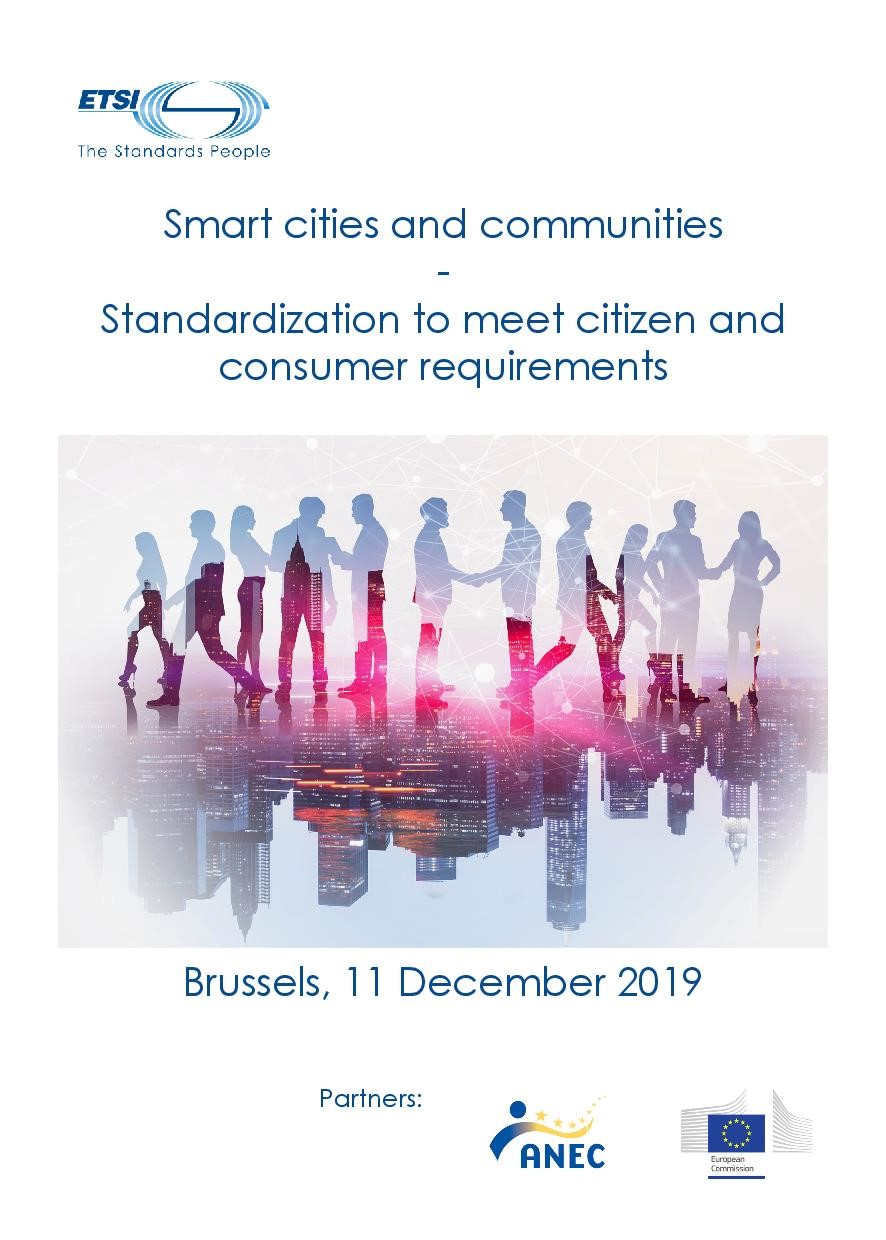Smart cities requirements and consumersETSI is hosting an open meeting on smart cities and communities on 11 December in Brussels, following an ANEC proposal. The aim of the meeting is to discuss how standardisation can meet the expectations of consumers and citizens. At the moment, the needs of the citizen, including usability, accessibility and data security, are seldom considered by cities. The ETSI Technical Committee on Human Factors is preparing a Technical Report that will explore these issues, and make recommendations to standards bodies and cities on how the landscape can be improved. The draft Report, being drafted under ANEC’s leadership, will be presented, and the outcome of the meeting will be taken into account in the final version of the Report. For more information please follow the link:
|
Lead story
Interview with Benedicte Federspiel
Benedicte is a founding member of the ANEC General Assembly, having been the Danish member of ANEC since 1995. Treasurer since 2007, she was ANEC President in the decade from 1997. A former Treasurer of Consumers International, and the present Vice-President of the External Relations Section (REX) of the European Economic & Social Committee (EESC), Benedicte is one of the best known members of the consumer movement, both at home and abroad.
You have dedicated almost all of your career to consumer protection. What led a young lawyer to take that pathway?
Consumer law was not very "smart" at the time, and tax law might have given more butter on the bread, but it concerns everybody, and it is easy to explain and relate to. Businesses used to say they were consumers too, so the discussions were often tough but almost always fun.
Despite the many competing priorities for your time, you have been a dedicated member of ANEC since it was established almost 25 years ago. Why do you find the consumer voice in standardisation to be so important?
In Denmark, we have a very long-established cooperation with industry and authorities on standards. It was generally agreed that there was no chance to get standards well recognised in society without all stakeholders participating - something that took some time to understand in other countries.
ANEC will soon start drafting a new strategy. What do you think will be the most important issues for ANEC to address in the next years?
The "old" issues of performance, and especially safety, will always be there, but it is very important to scrutinise the new trends in politics on climate change, sustainability and the digital agenda, and see the advantages (as well as the challenges and risks), in initiatives such as the Internet of Things. Fortunately, that is already happening, but the solutions are not so straightforward.
You were a member of the Council of Consumers International for many years and are still a European member of the TransAtlantic Consumer Dialogue. Given the refreshed dialogue between Presidents Trump and Juncker of 2018, do you think European consumers could benefit from bilateral agreements between the EU and USA?
Well, that is a tough one. Unfortunately, the USA does not have an ANEC, and the tradition is for consumers not to be involved on the whole. In summary, it depends on party/industry politics and who has the upper hand in the decision-making, but we are optimists and will explore all opportunities, keeping a watchful eye. . .
What one big thing would you still like to achieve for consumers?
The basic achievement needed is to be able to influence decision-making, and consumer organisations around the world (including Europe) are still not systematically involved and consulted by the standards organisations or authorities. So there is much still to be done!
Thank you, Benedicte.
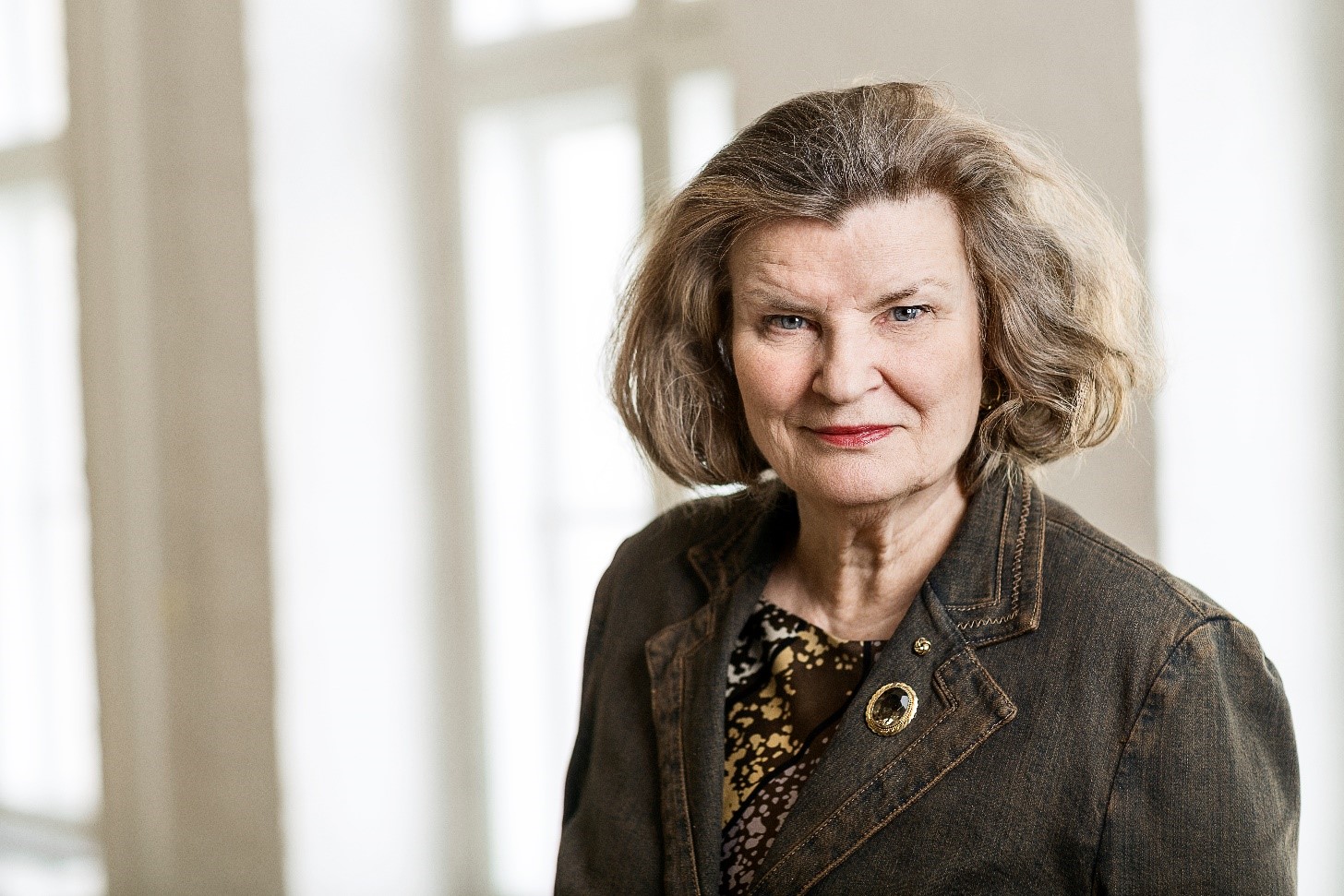
Horizontal
EESC event on inclusiveness of the European Standardisation System
On 5 November, the European Economic & Social Committee (EESC) hosted an event on the inclusiveness of the European Standardisation System. Speakers included the European Commission (EC), European Standardisation Organisations (ESOs), the four “Annex III organisations” (including ANEC) and EESC members.
With the date of the meeting coinciding with the autumn meeting of the ANEC Steering Committee, Arnold Pindar, immediate past President, kindly agreed to participate in the discussions for ANEC.
Arnold welcomed the progress made by the ESOs in deepening inclusiveness, and in strengthening the voice of underrepresented stakeholders. In particular, he noted the right granted to ANEC, ECOS & ETUC to submit Opinions on draft standards in CEN-CENELEC, and the ETSI 3SI Initiative. Nevertheless, he recognised the political support the European Institutions have given the Annex III organisations in implementation of Regulation (EU) 1025/2012, the “Standardisation Regulation”.
He went on to stress that, although the Annex III organisations require public funding to a greater or lesser degree in executing their missions, this funding is not a cost but an investment which safeguards public confidence in the public-private partnership fundamental to the European Standardisation System. Moreover, he underlined that it is no exaggeration to say that, without the Annex III organisations, there would be no effective representation of underrepresented stakeholders in the European Standardisation System.
Arnold provided a briefing on the event to the ANEC Steering Committee meeting later in the afternoon.
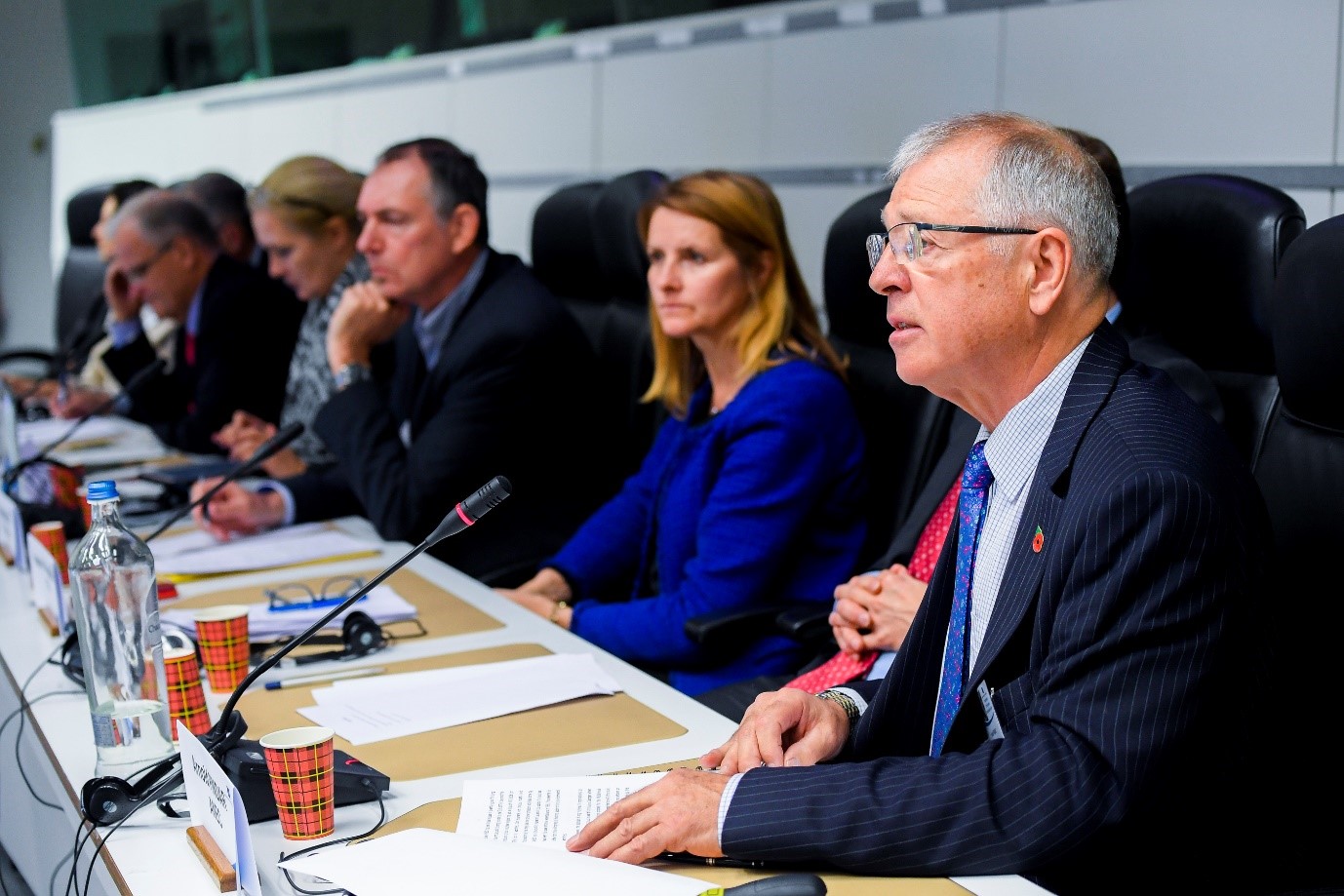
ANEC national outreach event in Finland
On 16 October, ANEC and Kuluttajaliitto (the Consumers’ Union of Finland) co-hosted a national outreach event in Helsinki on the importance of consumer participation in standardisation.
The aim of the event, kindly supported by the Finnish Standards Association (SFS), was to aid interaction between the consumer movement and the standardisation community, and to strengthen the relationships among consumers, national standards organisations and national authorities.
Stephanie Regna-Gladin (EC DG GROW) presented the legal framework for European standardisation and explained, among others, the main differences between legislation and standardisation.
Following a presentation from Tania Vandenberghe on the role of ANEC, its main areas of expertise and success stories of influencing the standardisation process, Karin Both (DIN Consumer Council) spoke on how consumer participation in standardisation works at the national level in Germany, leading to a discussion of the frameworks for financing and structure in other countries. Tiina Vyyryläinen (Kuluttajaliitto) and Susanna Vahtila (SFS) added further perspectives on the Finnish experience.
Chris Evans, an ANEC household appliances expert, talked about ANEC’s campaign to eliminate the discriminatory “exclusion clause” from European (and now international) standards for domestic electrical appliances which has resulted in literally hundreds of millions of products sold each year being safer and more accessible for all consumers.

Participants were introduced to the CEN-CENELEC e-learning course on standardisation and societal stakeholders (http://www.standards4all.eu). The course was developed with the help of ANEC and we see it as an important tool which provides sustainable training in support of physical outreach events.
ANEC is pleased the Helsinki event brought together national stakeholders to discuss the value of standardisation, and the importance of consumer participation, during the Finnish Presidency of the EU. Our warmest thanks to all speakers and participants.
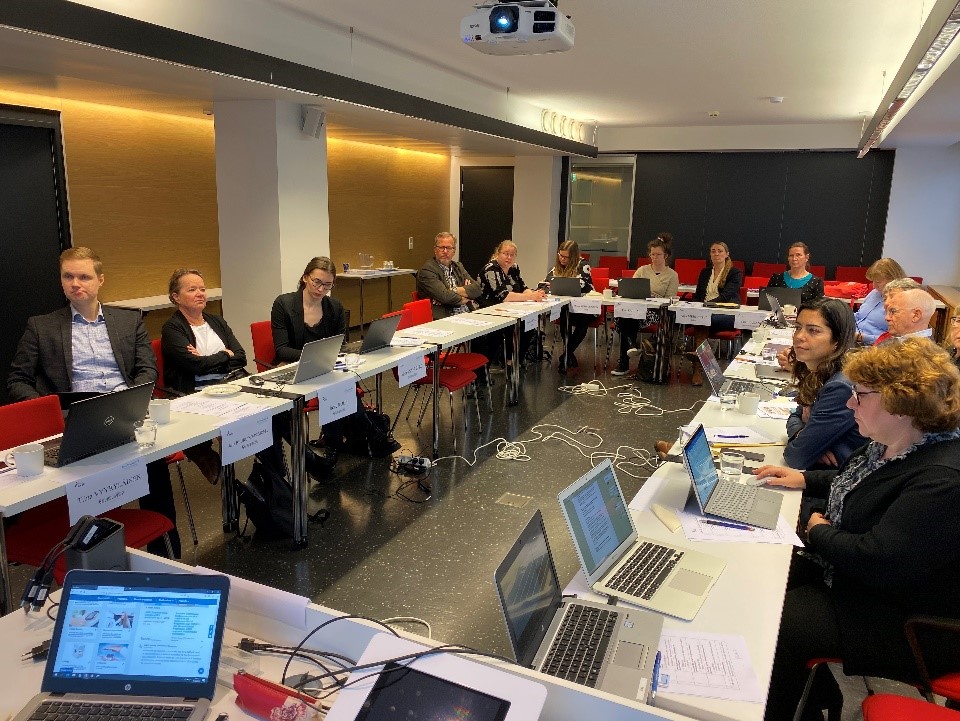
AUWP for European Standardisation 2020
The European Commission adopted the Annual Union Work Programme (AUWP) for European Standardisation 2020 on 28 October.
ANEC submitted comments on the draft AUWP and is pleased our proposals have been taken into account, both for standards to be mandated (in the Annex), and standards needed to support broader policies (e.g. cybersecurity, energy transition).
The adopted AUWP 2020 can be found here.
Meeting with ISO and IEC
On 20 November, ISO and IEC hosted a meeting with representatives of ANEC, ECOS, ETUC and SBS in Geneva.
The objective of the meeting was to consider how the four European associations can contribute to the global relevance of ISO and IEC standards, and the support ISO and IEC standards can give in achieving the UN Sustainable Development Goals (SDGs)
ANEC Secretary-General, Stephen Russell, welcomed the meeting. He commented, “Although European-headquartered associations, the four organisations represent stakeholders often absent from standardisation at the national level, not only in Europe but globally. We believe we can play a particular role in not only helping ensure the relevance of ISO and IEC standards to European needs, but also in helping ISO and IEC standards meet the UN SDGs”.
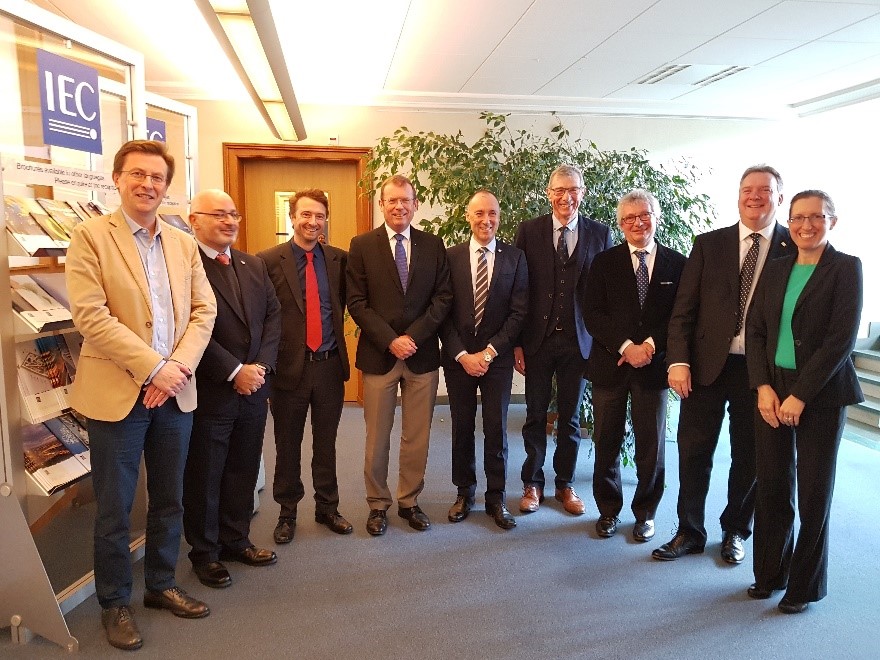
ANEC speaks at ICPHSO International Symposium
ANEC spoke at the ICPHSO International Symposium in Dublin on 24-25 October, an annual gathering of product safety professionals from around the world. The theme of this year’s event was “Shaping the future in times of international change”.
ANEC President, Dermott Jewell, gave the keynote speech on the first day, while Senior Programme Manager, Tania Vandenberghe, joined the panel discussion, “Shaping the Future in Toyland: Safely Home for the Holidays” on the second. Issues that emerged during the conference were recall effectiveness, circular economy and the application of technologies such as IoT and AI.
ANEC and Danish Standards discuss consumer protection
ANEC Deputy Secretary-General, Chiara Giovannini, met with representatives of the Danish national standards body, Danish Standards, in Brussels on 28 October.
Discussions focused on the work of ANEC and Nordic model of consumer participation in standardisation, which is considered a best practice because of the public support to consumer organisations at the national level. The inclusive approach embraced by Denmark includes the participation of Benedicte Federspiel (Danish Consumer Council and Danish member of ANEC) in the Standardization Policy Forum (SPF) which advises the Danish Standards Board and Executive Board on political and legislative issues.
Child Safety
ANEC joins awareness raising campaign on the dangers of button batteries
On 20 November, the occasion of the 30th anniversary of the UN Convention on the Rights of the Child, ANEC joined several partners in raising awareness of the dangers of button batteries.
Button batteries are found in toys and many household products and their ingestion can prove fatal to the youngest and most vulnerable of consumers.
An e-brochure was launched following a joint EU market surveillance action on electric toys. The European Commission, DG JUST, launched a similar campaign on the day.

Revised standard for cribs
ANEC welcomes publication of EN 1130:2019 ‘Children's furniture - Cribs - Safety requirements and test methods’, which sets out safety requirements and test methods for cribs (including cradles, suspended cribs & bedside sleepers) for domestic and non-domestic use. Cribs used for medical purposes or for use in hospitals are excluded from its scope.
Compared with the earlier standards, EN 1130-1:1996 and EN 1130-2:1996, the new standard provides an improvement of mechanical requirements, building upon lessons learnt from incidents with bedside sleepers in Europe and elsewhere. In addition, there are new requirements for chemical and flammability hazards, entrapment hazards from gaps and openings of the bedframe, falling hazards, instruction for use and warnings to be considered by parents when using a baby mattress etc.
EN 1130:2019 was developed by CEN TC 207 WG2 ‘Children’s and nursery furniture’. ANEC participated in the work and submitted a Favourable Opinion on the final draft. Although we continue to have concerns about the overall safety of bedside sleepers, we believe the approach presented in EN 1130:2019 to offer the least risk.
Accessibility
Approval of prEN EN 301549 V3.1.1 (2019-06)
prEN EN 301549 V3.1.1 (2019-06) 'Accessibility requirements for ICT products and services' met with support during its public enquiry in ETSI and CEN-CENELEC.
Produced by the CEN/CENELEC/ETSI Joint Working Group ‘eAccessibility’ and ETSI TC Human Factors, this Harmonised European Standard will offer presumption of conformity to the Web Accessibility Directive (Directive (EU) 2016/2012) on the accessibility of the websites and mobile applications of public sector bodies.
This standard is a revision of the standard prepared last year. The first version needed to be available when the Directive entered into force in September 2018. This second version contains additional requirements (alignment with international standardisation developments (W3C UAAG and ATAG requirements, US Section 508 on display screens) and particular aspects to address cognitive disabilities), and has been developed under Standardisation Request M/554.
The comments submitted during the enquiry, mainly editorial, will be addressed and a decision will be taken on whether the standard can be published immediately or needs to be submitted to a Formal Vote.
FUNKA-ANEC Workshop on accessibility
On October 17, as part of FUNKA’s We4Authors project, ANEC co-hosted a workshop in Brussels on accessibility in authoring tools.
The We4Authors project focuses on bringing together Content Management System (CMS) producers in order to test accessibility-by-default features on CMS used by the public institutions. Its aim is to define prototypes of default accessible features, test them with existing users and then write guidelines for CMS producers, suppliers and public authorities in order to improve the way accessibility can be utilised to help the implementation of the Web Accessibility Directive.
We were delighted to welcome CMS producers, suppliers and providers, including standardisation experts, to the workshop. FUNKA presented the project results and the draft guidelines. Participants examined the biggest obstacles to creating accessible web content and proposed solutions which FUNKA will incorporate into the project.
FUNKA hosted two other workshops on the preceding days: addressing the perspective of end users with disabilities (with the European Disability Forum (EDF)), and for web professionals from the public sector (with the European Regions Research & Innovation Network (ERRIN)).
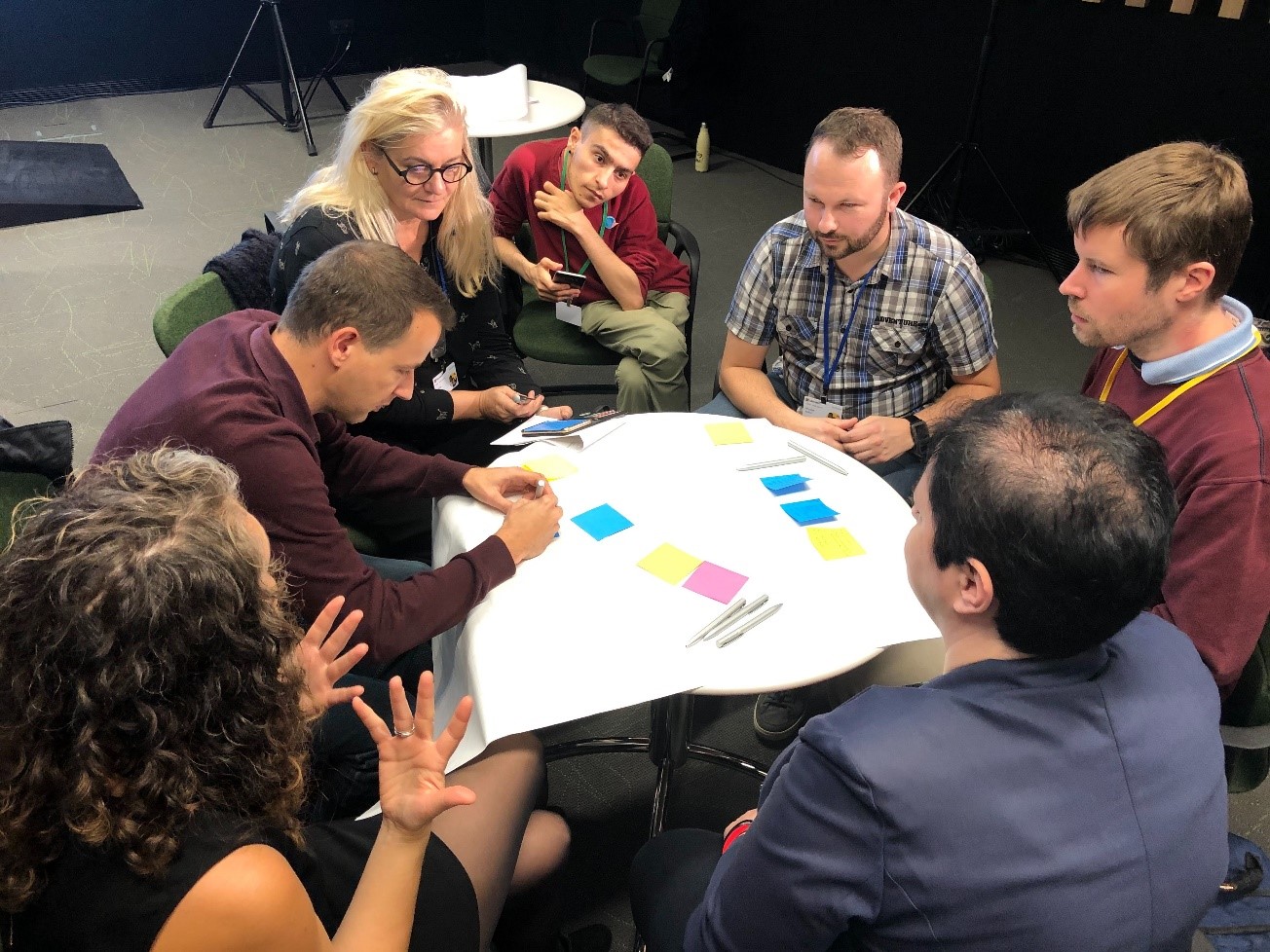
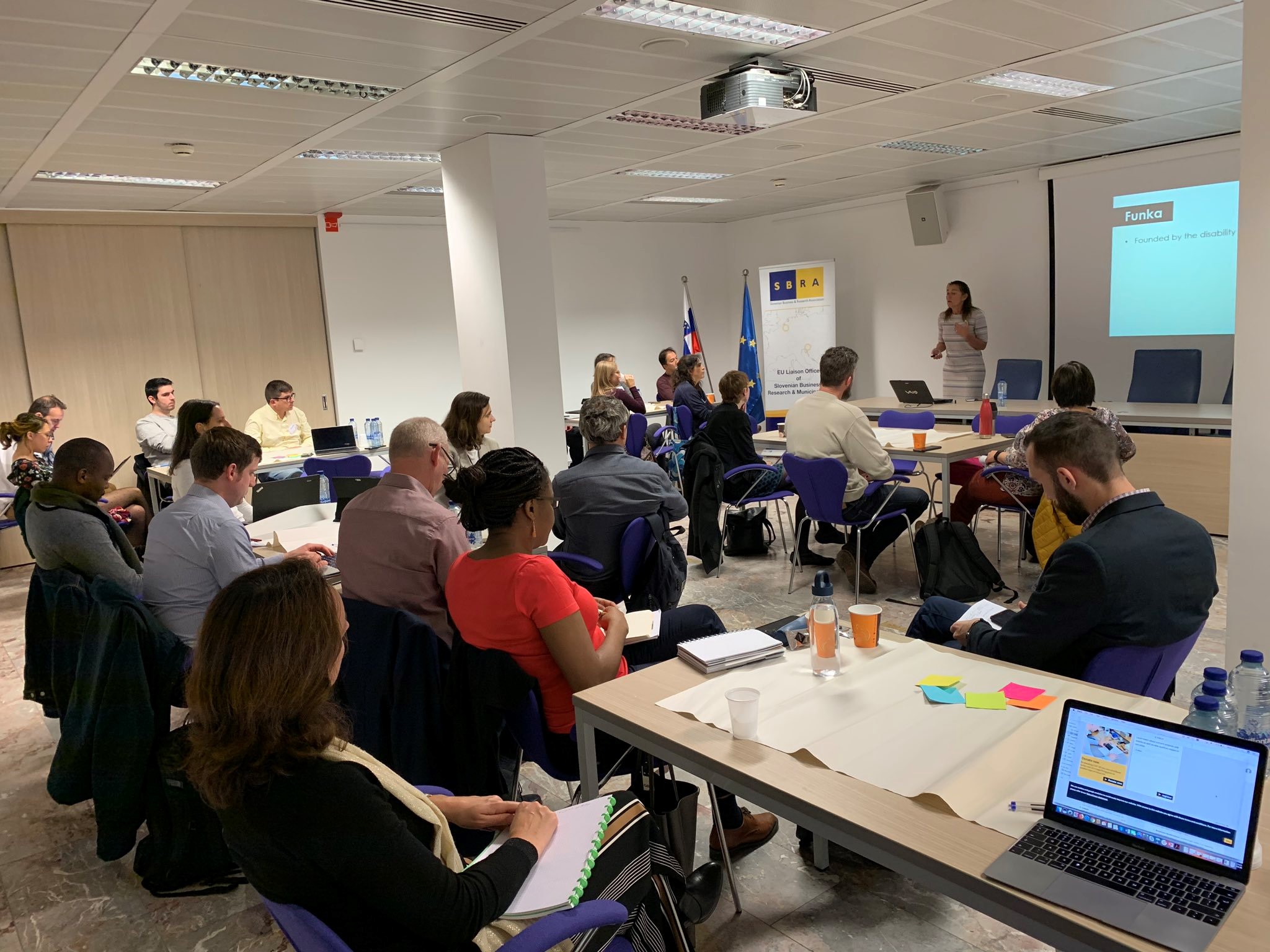
ANEC speaks at EDF Seminar
ANEC Deputy Secretary-General, Chiara Giovannini, joined a panel discussion during an EDF Seminar in Helsinki on 9 November.
The panel discussed harmonising approaches to the accessibility of built environment and transport in the EU. Chiara presented ANEC activities on consumer engagement in the standardisation of the built environment at the European and international levels. She reaffirmed our commitment to work together on accessibility standardisation in order to make Europe “#Access4All”.
The seminar ended with a resolution which highlights the next steps needed to promote accessibility in Europe.
The seminar, and later EDF board meeting, were supported by the Finnish Disability Forum, the Finnish Presidency to the EU, the Ministry of Social Affairs and Health of Finland, Ministry of Foreign Affairs of Finland, Ministry of the Environment of Finland, Ministry of Transport and Communications of Finland and the Ministry of Economic Affairs and Employment of Finland.
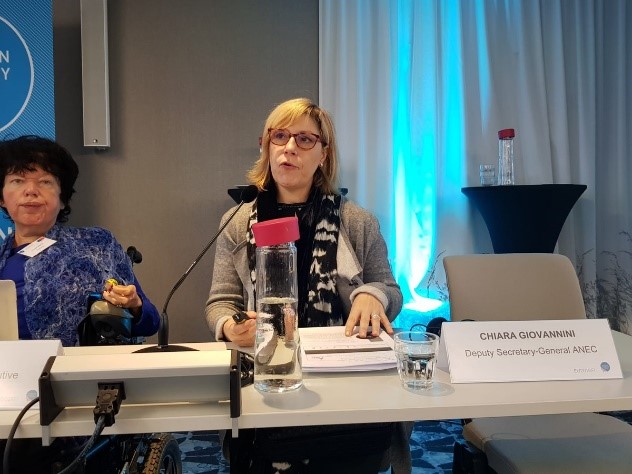
ANEC Accessibility WG meets
The annual meeting of the ANEC Accessibility WG took place on 19-20 November in Brussels.
The meeting was opened by the Chair of the Working Group, followed by a presentation on the recent European Accessibility Act by the European Commission. As every year, the meeting opened the floor to members to reflect on their active involvement in the various accessibility-related technical bodies at both European and international level, including a look ahead to future standardisation work.
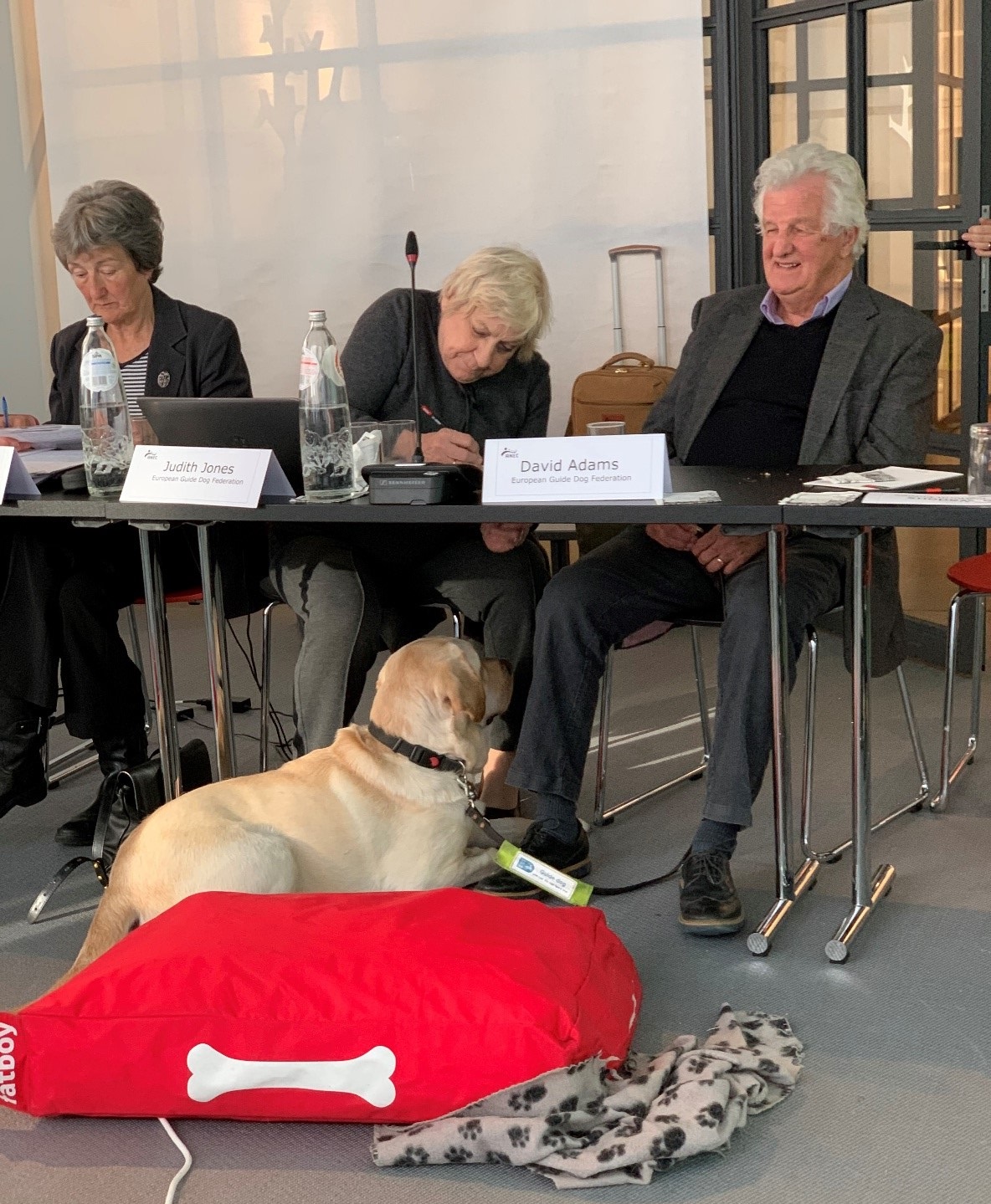
Domestic Appliances
ANEC Domestic Appliances WG meets
The annual meeting of the ANEC Domestic Appliances WG took place on 16-17 October in Helsinki, after an invitation from Kuluttajaliitto (the Consumers’ Union of Finland).
The meeting discussed standardisation and legislative initiatives, as well as upcoming challenges related to safety, performance, eco-design & energy labelling, accessibility & usability, and the market surveillance of household appliances.
The WG, led by Chair Karin Both, brainstormed about reasonably foreseeable (mis)use, and reviewed priorities shared with other ANEC Working Groups.
Our special thanks to SFS, the Finnish Standards Association, for having hosted the meeting.
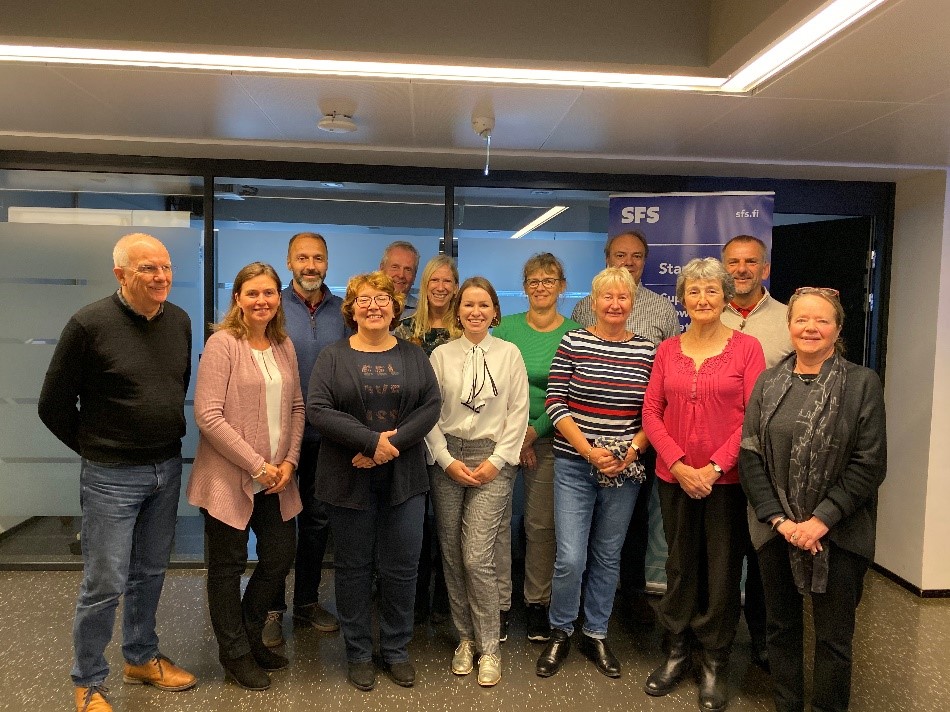
Domestic Appliances/Services
ANEC participates in EU Fire Safety Week
The first European Fire Safety Week was held from 18-21 November 2019.
On 19 November, ANEC Senior Programme Manager, Tania Vandenberghe, attended the "Fire safety of buildings" event which discussed how a holistic approach, based on the Building, Installation & Organisation framework, could cut the risk of domestic fires in Europe. The next day, Anne Lucet-Dallongeville, the French member of ANEC, joined the conference, “Electrical Safety & Energy Transition: Preparing Buildings for a Safe Energy Transition”.
Key points for ANEC in fire safety are the need for European legislation, the setting up of a European injury data base that also addresses fire accidents, and the need to give more attention to fire safety management, emergency planning, staff training and education.
Sustainability
CEN-CENELEC workshop on materials value chains
A workshop, “Materials – Value chains for circular economy: metal, wood, plastic and concrete”, was hosted by CEN-CENELEC on 29 October.
It addressed the challenges linked to the circularity of material-use at each phase of the value chain, and discussed specific standardisation gaps for metal, wood, plastic and concrete.
Case studies were presented for the selected materials, supported by presentations from the EC and ISO. Participants discussed possible solutions and role of standards in tackling the challenges identified.
ANEC was part of the steering committee that organised the event.
We appreciated the chance to share our views on the Circular Economy at the workshop with the wide range of participants present.
CEN President, Vincent Laflèche, wrapped up the event by concluding that, although many standardisation solutions exist to facilitate the transition to a Circular Economy, there is still need for dovetailed standards along the entire value chain. He trusted the workshop would pave the way for future European standardisation work in this area.
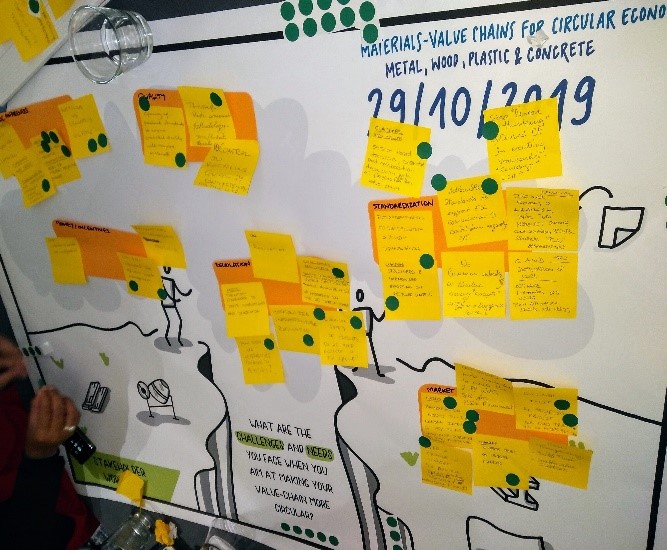
Digital Society
ANEC-BEUC position, “Keeping consumers secure”
ANEC and BEUC have taken a stance on cybersecurity-related standardisation through the position paper, “Keeping consumers secure”.
The paper voices two main demands. First, in order for a standard to be effective, its requirements need to be clear, unambiguous and replicable. Second, the EC and the European Standardisation Organisations (ESOs) should boost their efforts to develop European standards on the security of connected products, with the contribution of all concerned stakeholders.
We propose a collaborative approach to standards on cybersecurity, where the ESOs would agree to define which organisation will be responsible for which activities, since the parallel approaches of CEN-CENELEC and ETSI can lead to inconsistency.
In our view, it is essential that the standardisation process acknowledges the principles of openness and transparency when it comes to the decision-making process, in order to enable all stakeholders to participate effectively. Consumer participation is a must in ensuring standards and conformance systems achieve a high-level of consumer protection and can balance the industry position.
News from ANEC member countries
Turkey
World Standards Day
The Turkish Standards Institute (TSE) celebrated World Standards Day on 14 October with an International Standardisation Summit in İstanbul. The meeting was attended by Nerkis Kural, the Turkish member of ANEC.
The discussion focused on the importance of participation in standardisation in a world where 90% of trade is impacted by standards, and where daily life would be hampered by the barriers that would be present if it were not for standards.
Keynote speeches featured from ISO President John Walter, CENELEC President Dany Sturtewagen, IQNet President Alex Stoichitoiu, and İhsan Övüt, Secretary-General of SMIIC (the Standards and Metrology Institute for Islamic Countries).
Turkey was encouraged to participate more in the development of standards.
A presentation was also made on the IPA II project of the European Union and TSE, “Technical assistance for the improvement of the standardisation system and raising awareness”.
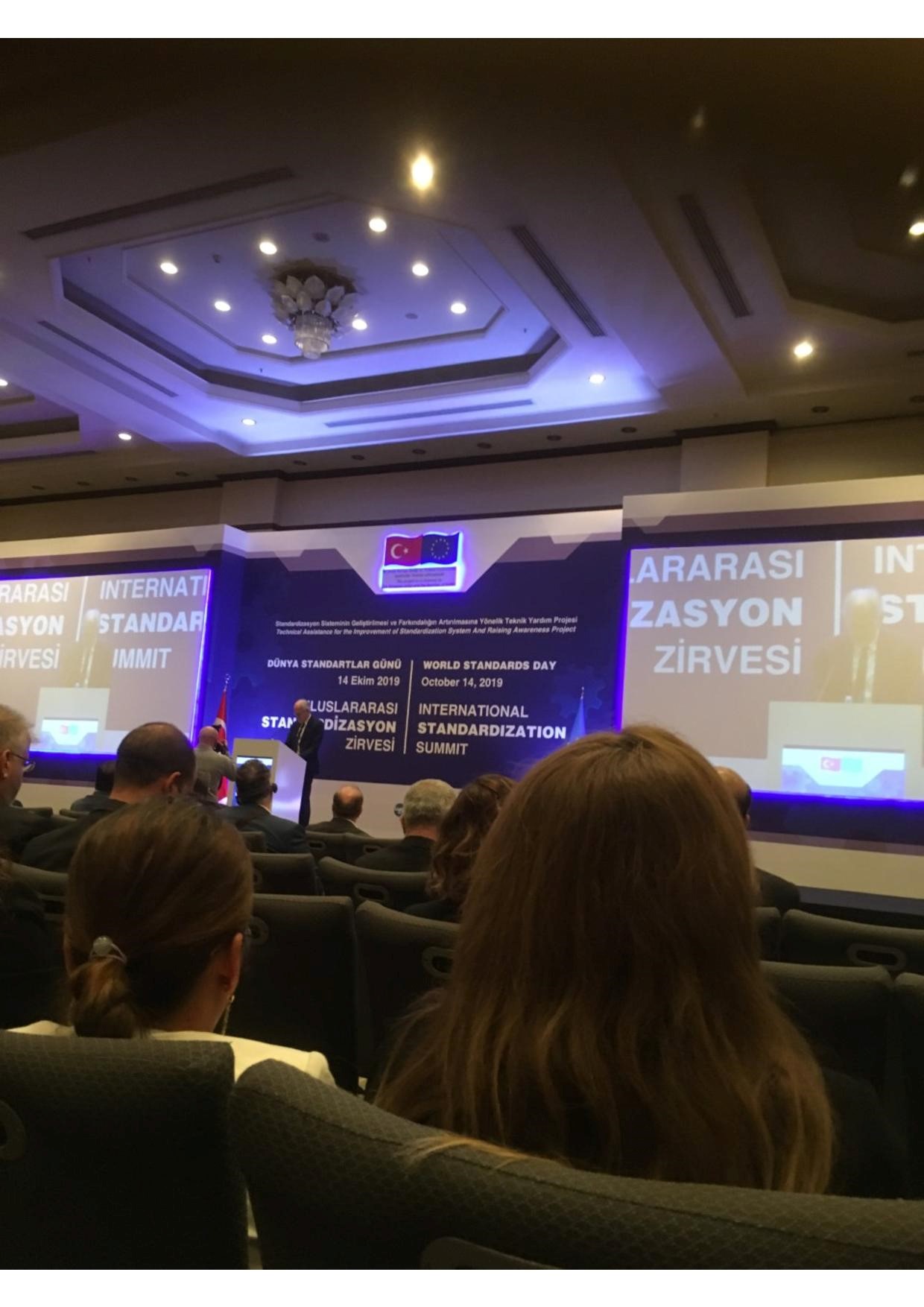
Portugal
Buying safe children’s products online
APSI, a key contributor to ANEC’s work on child safety, hosted a free event in Lisbon on 14 November: "Buying safe children’s products online. What consumers need to know", supported by the Consumer Directorate-General of Portugal.
The conference was part of the “e-COM 4 CHILDREN” transnational project, funded by the EC Erasmus+ programme, which aims to develop ICT open educational resources for the e-commerce of children’s products (such as toys, children’s furniture and childcare articles).
Participants learned about the tools of the project and had opportunity to discuss the challenges this more recent type of commerce poses to consumers, especially children.
The project will end with an event in Spain on 26 March 2020.
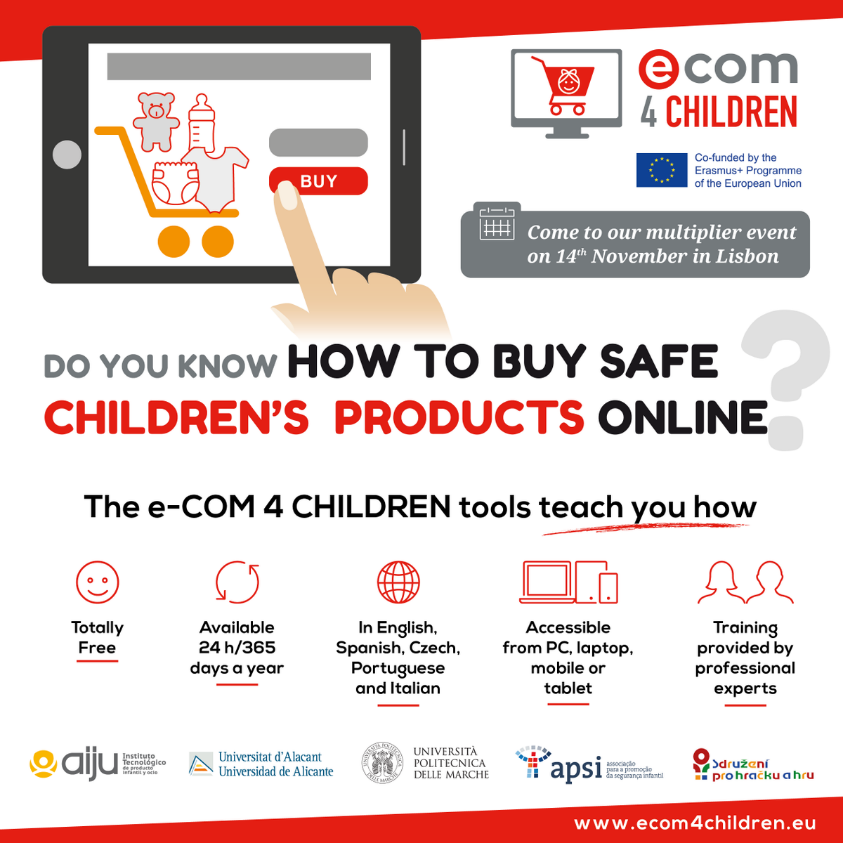

| List of meetings 2019 |
For comments or if you wish to write an article for the ANEC Newsletter, please contact: Marijana ANTAROROVA (This email address is being protected from spambots. You need JavaScript enabled to view it.).
